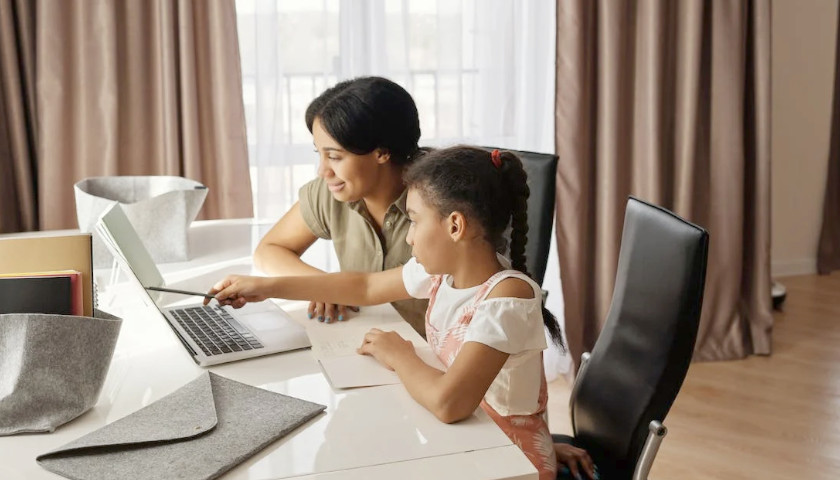by Kerry McDonald
Now is often the time of year when parents begin looking into other learning options and schooling alternatives for their kids. The new school year has been in session for several weeks and some parents may be finding that bubbling issues may have reached a boiling point.
Perhaps their child isn’t a good match with his or her assigned teacher. Perhaps parent-child battles over homework have emerged. Perhaps parents see certain elements of their child’s curriculum that they dislike, or hear about various classroom practices that they find unsettling. Perhaps their child is bored or withdrawn, frustrated or irritable, anxious or depressed. Perhaps the bullying has started or worsened.
Whatever the reason, some parents may be searching for other educational possibilities for their children. Fortunately, they now have an abundance of options to explore. From high-quality virtual learning programs to low-cost microschools, learning pods, and homeschooling collaboratives, exiting an assigned district school for a different, better learning environment has never been easier.
Over the past 30 months, both parents and educators have been empowered to seek or build new K-12 learning solutions. Education entrepreneurship, which was gaining traction before 2020, has soared since then, driven by broad parent demand for more educational options and accelerated by the growth of education choice programs in many states that make opting out of a district school more feasible for more families.
Many of these entrepreneurial educators have had the desire to create a new learning offering for years, but they lacked the catalyst to take the leap and launch their organization. Similarly, many parents have long been dissatisfied by their children’s default educational option, but weren’t sure how to make a change. The disruption caused by prolonged school closures and related policies provided that necessary nudge for educators and parents alike.
One such education entrepreneur is Nathan Fellman. He had been a public middle school teacher in New Hampshire for nearly 20 years before leaving the profession to launch his own middle school program this fall. “I’ve had the core concept for a dedicated middle school with small classes engaged in collaborative learning for a while,” he told me recently. “I don’t know if I’d ever have really tried to build that thought into an actual reality if our whole society hadn’t been sideswiped by COVID-19. The final push to leave public schools and try to start something different came with the disruption to the status quo that the pandemic brought.”
This month, Fellman, along with two colleagues, launched The Harkness House, a private microschool and schooling alternative in Nashua, New Hampshire that emphasizes personalized, self-directed learning for middle school-age students. Middle schoolers have long been a neglected group of learners, says Fellman. Just as they enter adolescence and confront enormous physical and emotional change, they get thrust into larger buildings and more impersonal classes, which can leave many of them feeling unmoored.
He decided to finally do what he had long been dreaming about and create a middle school where young people can thrive. “If we give adolescent learners the respect, autonomy, and attention that they crave and deserve, we can make middle school the most important educational years,” said Fellman.
The Harkness House offers a full-time, private school option that is accessible to more families thanks to New Hampshire’s new Education Freedom Accounts that enable education funding to follow students. It also provides customizable learning opportunities for homeschooled adolescents who are looking for an affordable schooling alternative, with 2-day and 4-day a week programming options.
“As we’ve built our full-time program at The Harkness House, we’ve found a shared excitement for student autonomy and self-directed learning among families who are pursuing non-traditional educational pathways and who are not necessarily seeking full-time options,” said Fellman. “We know that we can give those students the ability to explore their interests and develop their passions in ways that just aren’t available in traditional schools.”
Prompted by the pandemic response, more parents and teachers are imagining and introducing new K-12 learning models and schooling alternatives. They are reshaping the landscape of available education options, leveraging new and expanded school choice policies where possible, and creating decentralized, individualized learning environments where young people can flourish.
At this time of year, many parents may be starting to look for other education options for their children. Thanks to entrepreneurial educators like Fellman, they are now more likely to find what they are looking for.
– – –
Kerry McDonald is a Senior Education Fellow at FEE and host of the weekly LiberatED podcast. She is also the author of Unschooled: Raising Curious, Well-Educated Children Outside the Conventional Classroom (Chicago Review Press, 2019), an adjunct scholar at the Cato Institute, education policy fellow at State Policy Network, and a regular Forbes contributor. Kerry has a B.A. in economics from Bowdoin College and an M.Ed. in education policy from Harvard University. She lives in Cambridge, Massachusetts with her husband and four children.





